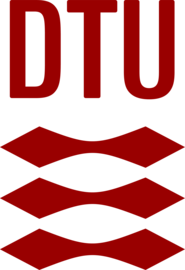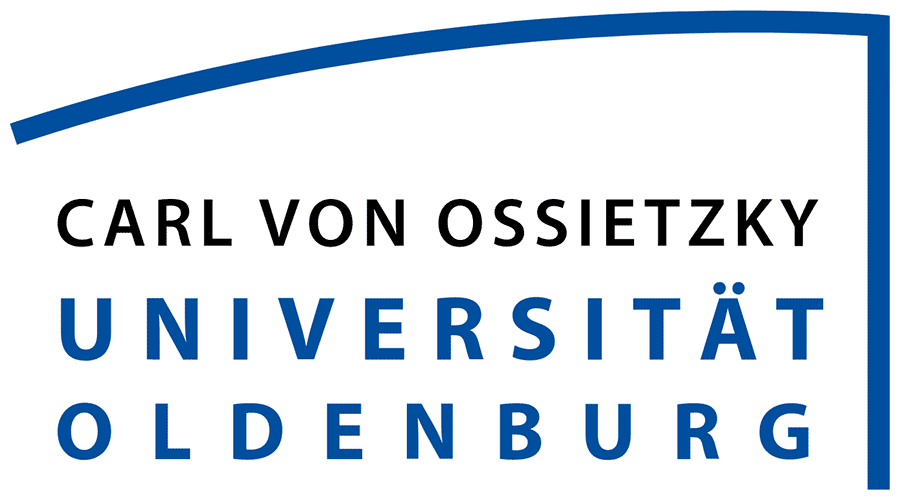Technical University of Denmark – DTU
The Technical University of Denmark (DTU) has been engaged in wind energy research and education since the 1970’s and offers a dedicated M.Sc. programme since 2001. Wind energy-related activities are carried out in three main departments, Mechanical Engineering, Electrical Engineering and the Risø National Laboratory, and deal with aerodynamics, structural mechanics, aeroelasticity, electrical engineering, maritime engineering, power electronics, boundary layer meteorology and systems integration. The research staff involves about 120 researchers and 50 Ph.D. students, with an annual publication rate in peer-reviewed journals of about 100.
DTU research programme benefits from the partnership with many important actors in the wind energy industry, particularly through the Risø National Laboratory. Design tools such as Flex5 and Hawc and prognosis tools such as WasP, which are used by wind turbine manufacturers worldwide, have been developed at DTU. Currently, DTU is considered as a leader in the areas of wind turbine aerodynamics, aero-acoustics and optimization.
Delft University of Technology – TU Delft
Delft University of Technology (TU Delft) wind energy research programme dates back to the ’70s. TU Delft’s wind energy research institute (DUWIND) involves five faculties (Aerospace Engineering, Civil Engineering and Geosciences, Mechanical Engineering, Electrical Engineering, Mathematics and Computer Sciences, Technology, Policy & Management) covering different aspects of the design and technology of wind power.
DUWIND research staff comprises more than 60 FTE , half of which are Ph.D. students. Its R&D programme is supported by high level experimental facilities, ranging from wind tunnels to wave tanks and high-voltage power electronics laboratories, which attract an increasing amount of industrial research. Thanks to such facilities TU Delft has a leading role in the development of new rotor technology with distributed control (‘smart’ rotors) as well as access systems for offshore turbines (the Ampelmann system).
TU Delft offers a Wind Energy M.Sc. education as a variant of the Aerospace Engineering M.Sc. and as profiles of the Offshore Engineering M.Sc. and Electrical Engineering M.Sc. Fields of expertise include: design of wind turbines, rotors, offshore bottom-mounted wind turbine support structures, offshore wind farm design, offshore O&M, direct-drive generators and electric grid integration and optimization. TU Delft works in close cooperation with industry, and is a major partner of EU as well as national projects in wind turbine technology and offshore wind energy, such as UPWIND, INWind FLOW, WE&Sea.
Norwegian University of Science and Technology – NTNU
The Norwegian University of Science and Technology (NTNU) is involved in wind energy research since more than 25 years and offers an international M.Sc. programme in marine technology since 1992.
NTNU’s wide research programme is conducted in close cooperation with SINTE, in particular with SINTEF Energy and SINTEF’s research company MARINTEK, both partners of the IFE (Institute for Energy Technology) through the SFFE (Centre for Renewable Energy) and the NOWITECH (Offshore Wind Energy Centre). While, the SFFE has a coordinative and consultative function in research and education in the field of renewable energies, including small-scale hydropower, wind, solar, wave, and bio-energy, as well as for the social dimensions of energy use, whereas NOWITECH is specialised in offshore and electrical engineering and comprises universities, research institutes, companies. NOWITECH activities deal with computer tools, power transmission, support structures, operations and maintenance, involving 25 full-time researchers and about 20 Ph.D. students for a total budget of approximately 40M€. Additionally, 6 researchers and 25 Ph.D. candidates are involved in the offshore wind turbine research in the Centre for Ships and Ocean Structures (CeSOS).
NTNU also offers an international M.Sc. in Electric Power Engineering since 2002. The Electric Power Engineering department focuses on wind turbine generators, energy conversion (power electronics), onshore/offshore grid (system and components) and integration (market design, need for balancing due to intermittency) and large scale integration of intermittent generation, including smart grids. The research team counts approximately 20 FTE in wind power systems and about 35 Ph.D. students working on high-voltage components, subsea activities, power electronics, converters and studies related to renewable energy integration.
University of Oldenburg – UOL
The University of Oldenburg (UOL) has been carrying out wind energy research since the ’80s and hosts the ForWind joint Center for Wind Energy Research of the Universities of Oldenburg, Hannover and Bremen since 2003. ForWind acts as a national centre for wind energy research in Germany in collaboration with the Fraunhofer Institute for Wind Energy and with the Fraunhofer IWES. Fraunhofer IWES and the University of Hannover are associated partners in the EWEM consortium. UniOl also hosts IWES’ Computational Fluid and System Dynamics (CFSD) department.
UOL’s research focuses on fundamental as well as applied aspects of wind physics, i.e. the fundamental understanding of atmospheric flow and turbulence and its interaction with wind turbines, wind farms and energy systems over the different temporal and spatial scales, and involves 80 scientists. Major research infrastructure includes a supercomputer with more than 2.000 cores, wind tunnels and dedicated field measurement equipment.




